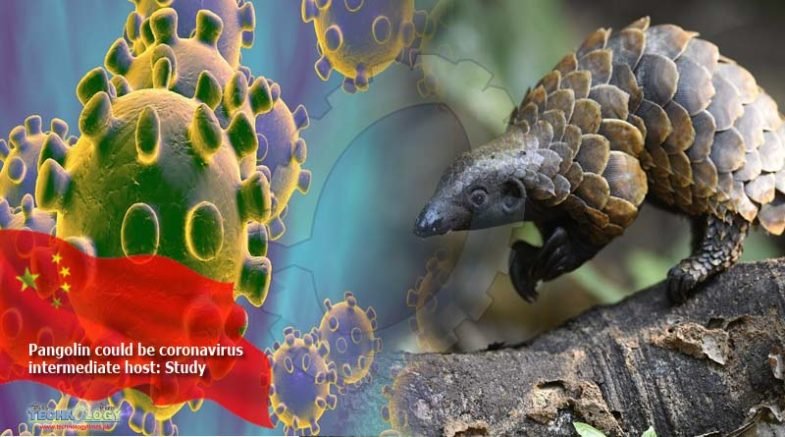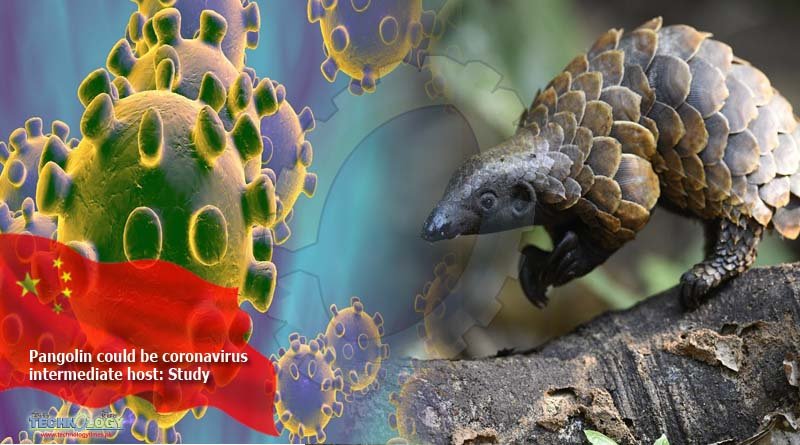The pangolin may be an intermediate host for the novel coronavirus, given that the genome sequence of a virus strain taken from the animal was up to 99 percent identical to that of the virus that attacks humans, a study has found.

Intermediate hosts can serve as a bridge between the source of the virus and a host such as humans.
The study, jointly conducted by researchers from South China Agricultural University and other scientific research institutes, may be of great significance to the prevention and control of the virus outbreak, which had caused 31,261 confirmed infections on the Chinese mainland as of late Friday.
The study’s results, announced on Friday at a news conference held by the university and the Guangdong Provincial Lab of Lingnan Modern Agricultural Sciences and Technology, included analyses of more than 1,000 samples from wild animals.
It pointed to pangolins, a type of scaly anteater, as the most likely intermediate host, officials said.
Through molecular biological testing, it revealed that the pangolins in the study tested positive at a rate of 70 percent for a type of coronavirus that includes the novel coronavirus.
Electron microscopy shows a typical coronavirus particle structure in pangolins, according to the study. Researchers who analyzed the virus genome found the sequence between the isolated virus strain and the human strain involved in the outbreak was up to 99 percent identical.
“We hope the study will be helpful for scientific prevention and control of the disease, as well as providing references for further scientific research of the novel coronavirus,” said Liu Yahong, president of South China Agricultural University.
Liu also said scientists think the study may “offer a scientific basis for policies related to the control and protection of wild animals”. Liu also is executive deputy director of the Guangdong Provincial Lab of Lingnan Modern Agricultural Sciences and Technology.
Zeng Guang, chief epidemiologist at the Chinese Center for Disease Control and Prevention, said more scientific studies need to be done into the exact transmission route of the viruses infecting animals and humans.
“Trade and consumption of wild animals of all kinds should be banned. Otherwise people will suffer,” Zeng said.
Shen Yongyi, a professor at South China Agricultural University, said there might be more than one intermediate host of the novel coronavirus.
“Pangolins, along with other small carnivores, may be potential intermediate hosts of the virus,” Shen said.
Most of the pangolins used in the study were not from the Wuhan seafood market, which has been closed. “We need more samples from the market to complement the research,” said Shen.
Previously, a study published in the academic journal Science China Life Science said the novel coronavirus is likely to have originated in bats, but there may be intermediate hosts between bats and humans.
China has taken strong measures against the wild animal trade during the novel coronavirus outbreak, with the country’s ministries and commissions jointly launching a special campaign to regulate the market on Monday.
On Jan 31, police in Guangzhou, capital of Guangdong province, confiscated some nationally protected wild animals, including the oriental rat snake and common moorhen, from a farmers market in the city’s Baiyun district.
In Guizhou province, police recently confiscated four wild boars, 27 pheasants, two hares and eleven wild goats after inspections in seven local farmers markets.
In Yixing, Jiangsu province, police said they detained a man surnamed Wang who was accused of illegally killing five squirrels and 10 yellow weasels.
